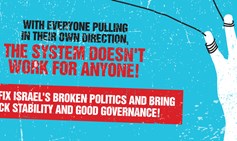

Publications Regarding Election Results
Articles

Israel’s First Elections in the Age of AI Will Test the Integrity of Democracy
Written By: Dr. Tehilla Shwartz Altshuler
With unprecedented technological tools in the hands of foreign and domestic actors, the proliferation of chatbots in the information ecosystem, and outdated regulatory frameworks, the integrity of Israel's 2026 elections will be tested like never before.

2022 Election Results
Written By: Prof. Ofer Kenig
The 2022 elections resulted in a clear victory for former Prime Minister Netanyahu, even though voters were split on whether they wanted him back in office. Prof. Kenig explains.
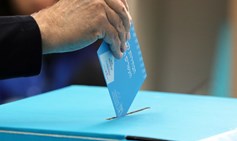
The 2022 Elections: Results Analysis
Written By: Prof. Ofer Kenig
After five elections in less than four years – Israel is on its way to political stability. Although the number of voters since 2021 didn’t change dramatically – almost 9% of the votes were wasted below the electoral threshold – how does this affect the makeup of the new Knesset? In addition the 2022 elections resulted in a clear victory for former Prime Minister Netanyahu, even though voters were split on whether they wanted him back in office. Prof. Kenig explains.

5 days to the Election: Jewish Israelis are Paying Less Attention
Written By: Prof. Tamar Hermann, Dr. Or Anabi
5 days to the Elections: Jewish Israelis are Paying Less Attention. A Majority of Arab Israelis are Following with the Same or Increased Interest. 30% of the Public Predicts a Fourth Election.

Getting Stay-at-Home Potential Voters to the Polls for Israeli Elections
Written By: Dr. Assaf Shapira, Dr. Ofer Bernstein
Rather than “packaging” voting as a political, civic and moral obligation, we should try instead to get these potential voters to think about the personal benefits to be gained by going to the polls.
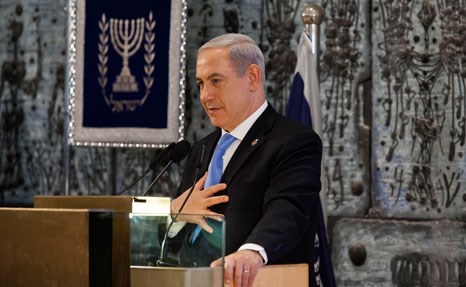
Netanyahu's Future
Written By: Dr. William Cubbison
Benjamin Netanyahu's legal problems are at the center of the current political quagmire. So what do Israelis think about the legal situation and what are the possible resolutions?

Benjamin Netanyahu Fails to Form a Government – What Happens Next?
Written By: Yohanan Plesner
While we cannot know for sure if Benny Gantz will succeed where Benjamin Netanyahu has failed, we can state with certainty that our political system of the past year has been characterized by deadlock, and this is not expected to end in the near future.
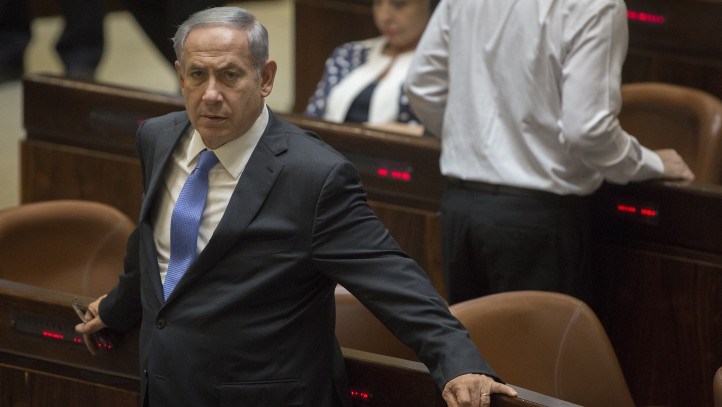
Majority of Israelis Think Netanyahu Should Resign
After Netanyahu returns mandate to the President: Most Israelis support a system based on 2 large parties and a Netanyahu-Gantz rotation for the position of prime minister. 53.5% of Israelis think Netanyahu should resign immediately, while almost half (47%) of right-wing voters believe that Netanyahu should resign if indicted.

Did the September Election Solve Anything?
Written By: Dr. William Cubbison
The failure to form a government in April and the subsequent second election surprised Israelis. Now, they might need to go to the polls for a third election in early 2020. What do Israelis think about this unprecedented political reality?

A Majority of Israelis Prefer a Unity Government
Written By: Prof. Tamar Hermann, Dr. Or Anabi
September 2019 Israeli Voice Index found that a majority of Israelis prefer a unity government. Additionally the majority of Israelis do not think the State should offer Benjamin Netanyahu a plea bargain or that he would agree to one.

In Praise of Normalcy
Written By: Prof. Yedidia Z. Stern
Despite all the fears, voter turnout was quite respectable (the third-highest rate in the seven elections this century).

September 2019 Elections - Initial Analysis
Written By: Prof. Ofer Kenig
After an unprecedented second round of elections - the final outcome is still unclear. We’re now entering the next stage of the political lifecycle: coalition negotiations - Dr. Kenig explains what’s next
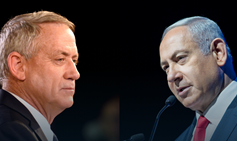
Post-Election Scenarios and the Case for Unity
Written By: Yohanan Plesner
Of the three realistic options, a unity government seems optimal. The other possibilities - a third round of voting or a narrow, right-wing government - carry exorbitant price tags.

Knesset Central Elections Committee is in Need of Reform
Written By: Dr. Dana Blander
A trustworthy and independent Central Elections Committee is essential for the holding of truly democratic elections – that is why a reform is overdue

Will Your Vote Count?
Written By: Dr. William Cubbison
To what degree does the Israeli public have faith in the integrity of the elections, to what extent does it believe that the April 9th elections will accurately reflect its views and how does Israel measure against other democracies?
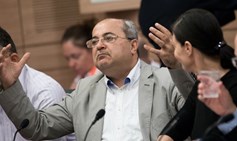
Arab Politics in the 2019 Election Campaign
Written By: Dr. Arik Rudnitzky
A review of political and ideological streams in Arab society in Israel - towards 2019 elections.
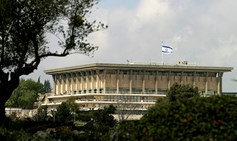
23 Knesset Seats is Not a Victory
Written By: Yehoshua Oz
In an op-ed in the Jerusalem Post, Yehoshua Oz, IDI's Director of International Communications, argues that pundits eager to crown a victor in the 2015 elections have lost sight of the fact that winning one-fifth of the Knesset seats is no victory.

The Israeli Municipal Elections 2013: Some Preliminary Findings
Written By: Nir Atmor, Dr. Dana Blander, Dr. Assaf Shapira
Dr. Nir Atmor, Dr. Dana Blander, and Assaf Shapira share some preliminary findings on voter turnout and women's representation in the Israeli municipal elections of 2013.


